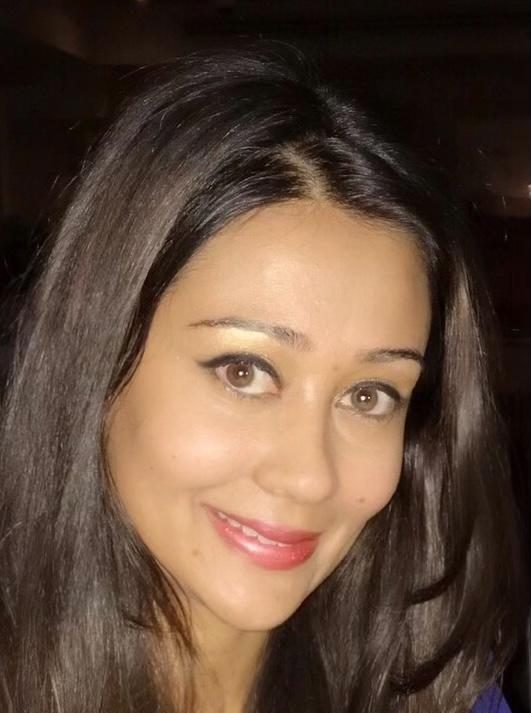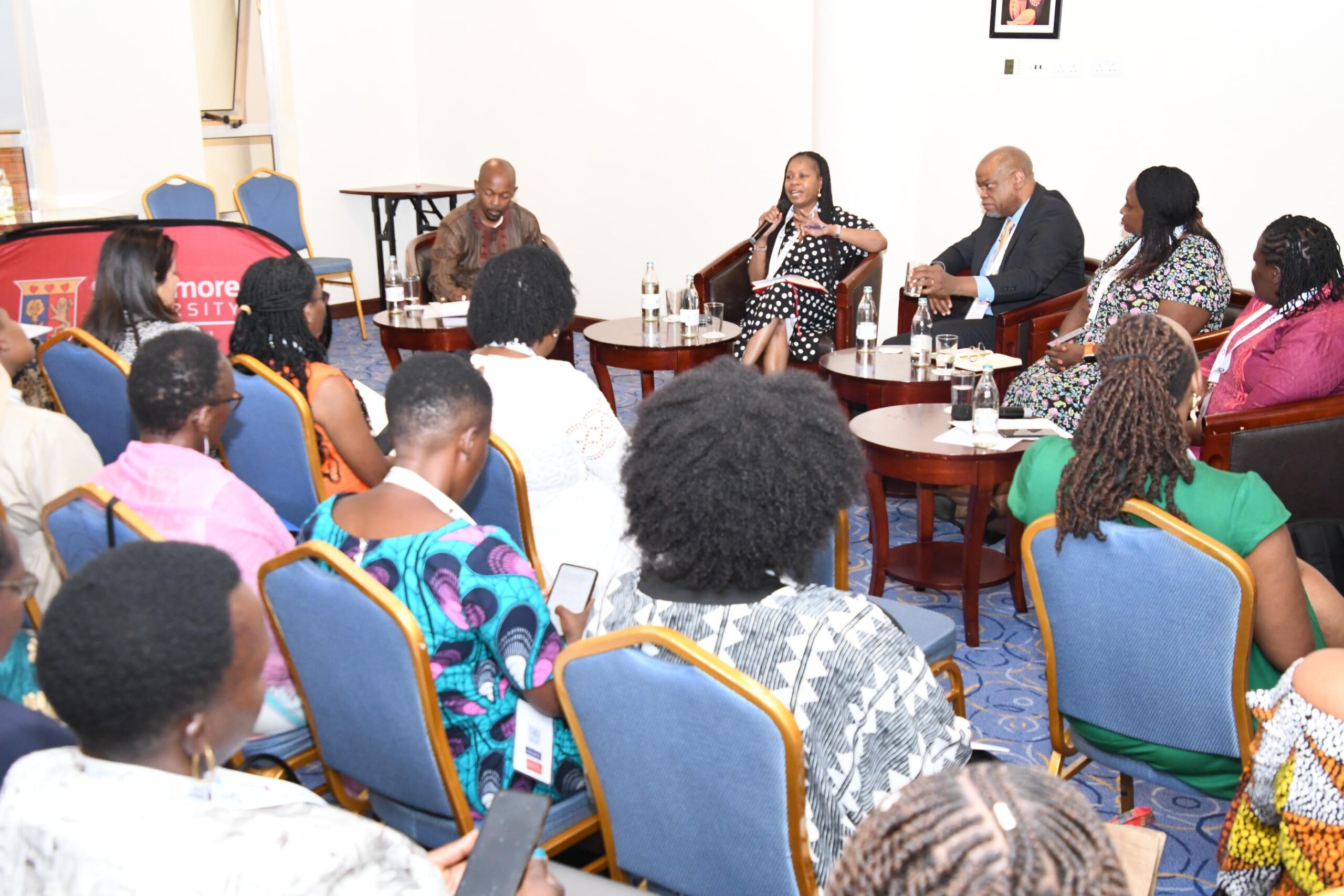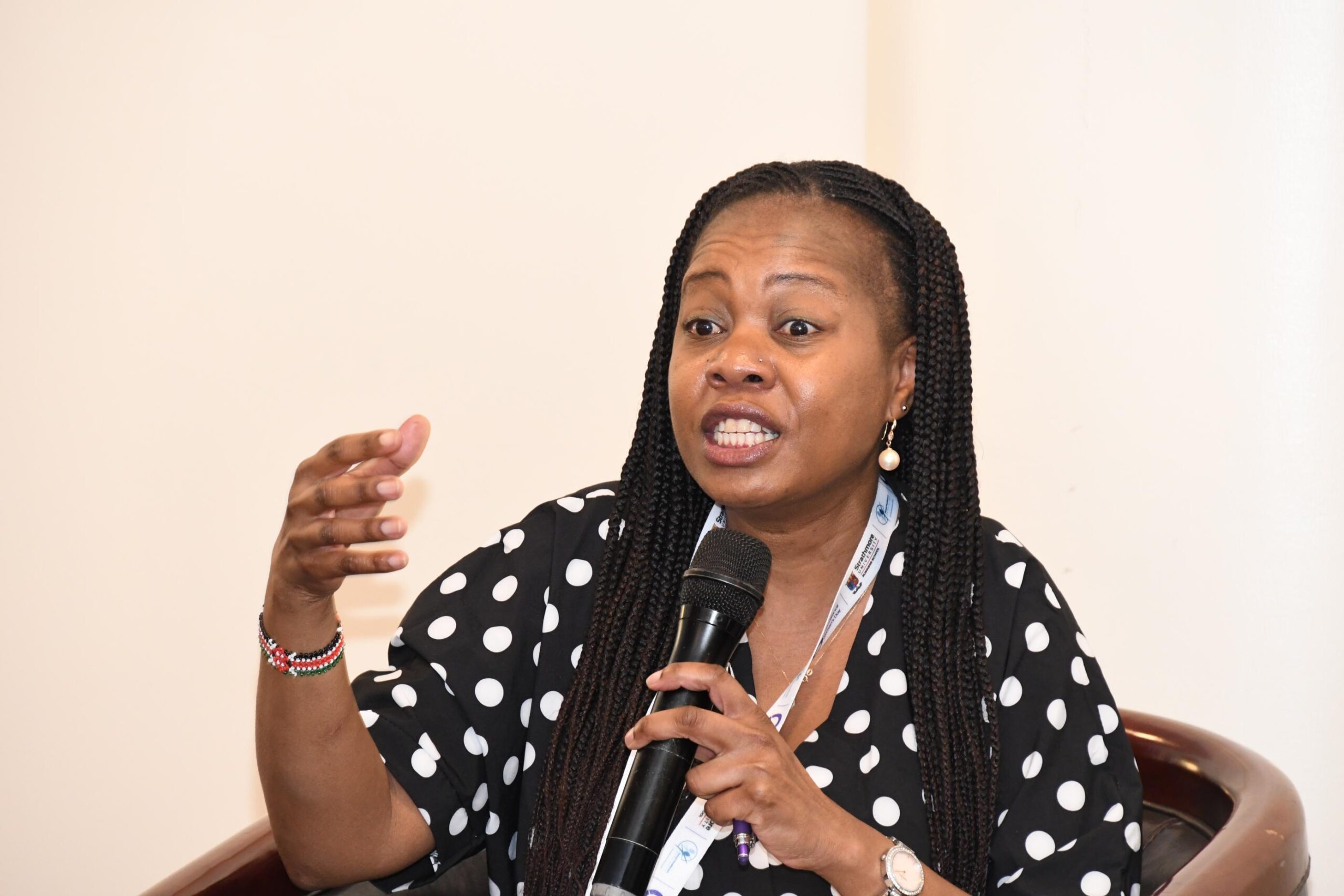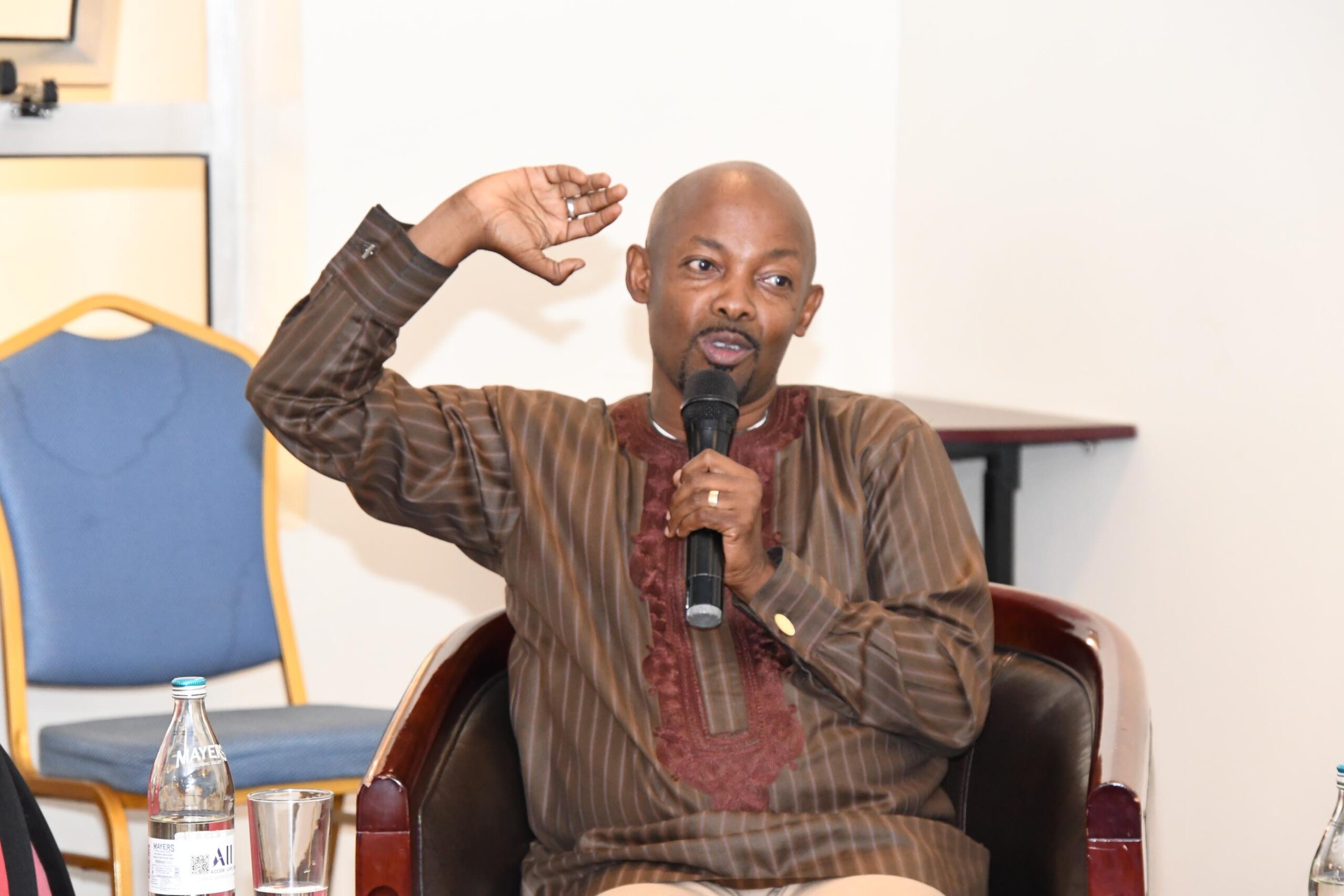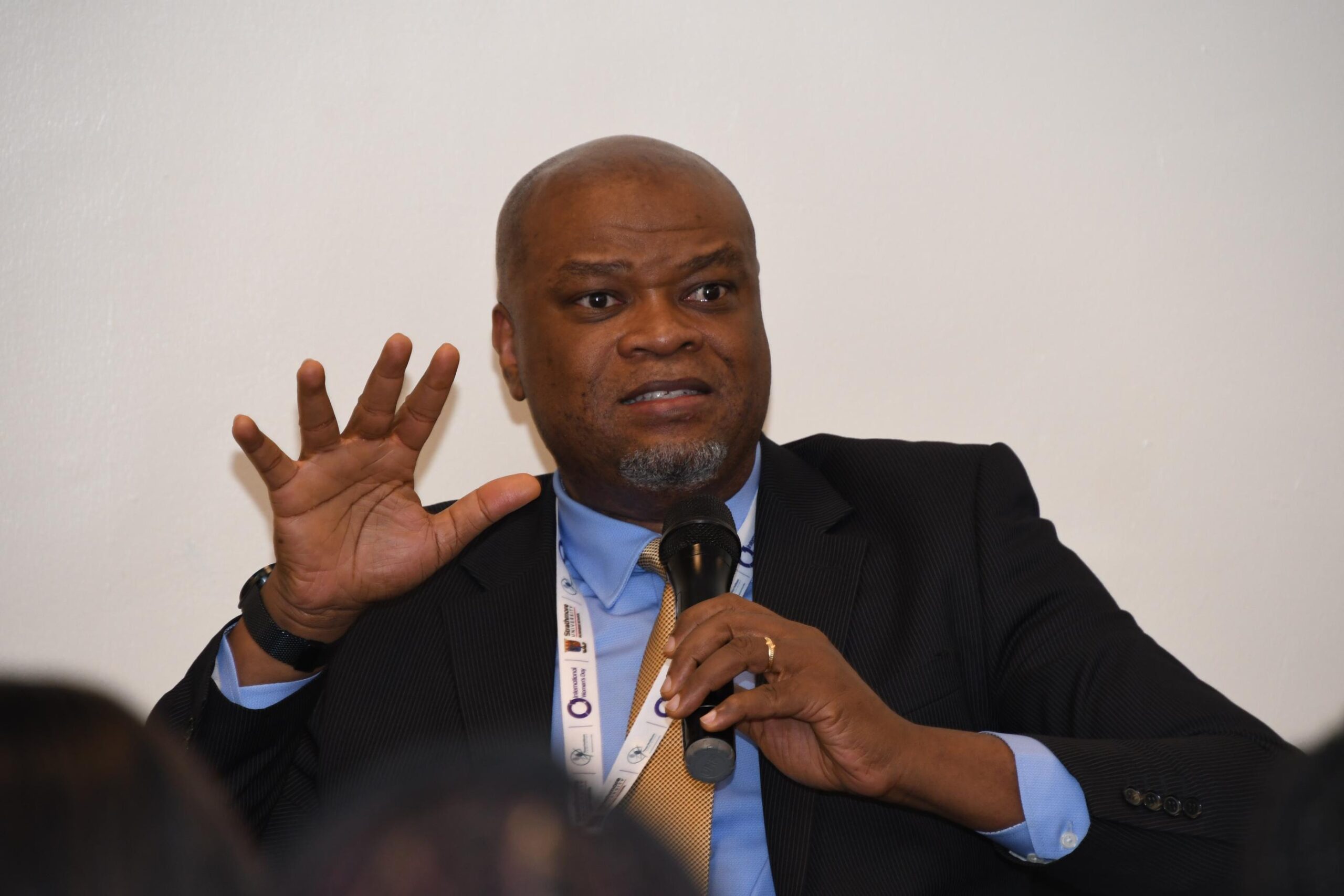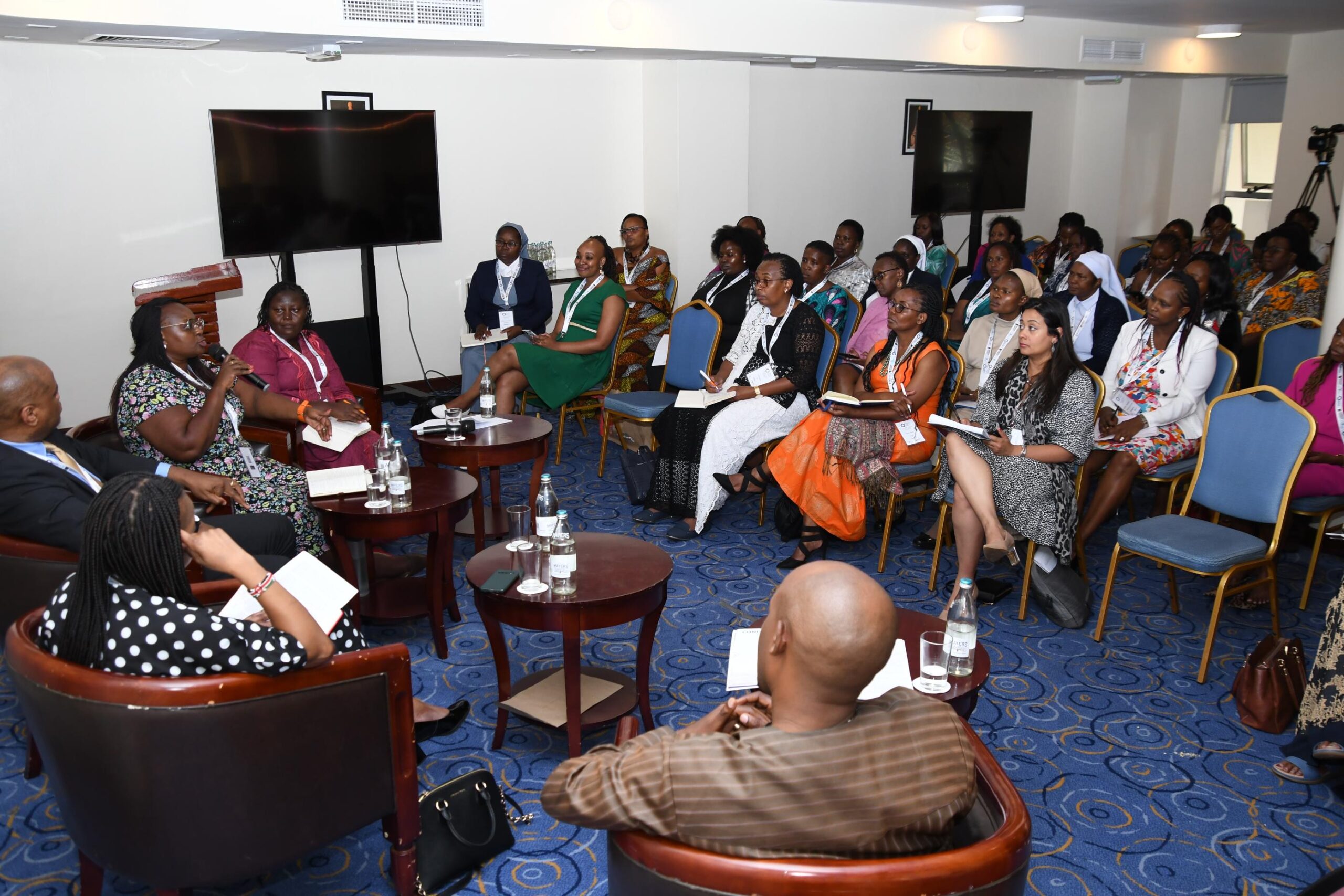Strathmore University Business School (SBS), in partnership with the Kenya Health Federation (KHF), held a conference aligned with the theme ‘Inspire Inclusion’ for International Women’s Day 2024. The conference addressed various topics under the umbrella theme, “Inspiring Gender Inclusion: Empowering Leaders, Bridging Gaps.” The event brought together women leaders, male allies, and influential stakeholders in the healthcare profession and other sectors. This article captures the key findings from the panel discussion entitled, ‘Establishing Mentorship, Coaching and Allyship Structures in the Workplace.’
The panellists included Thomas Mundia, Course Leader and Executive Coach, Strathmore University Business School (SBS), Dr. Margaret Lubaale, Executive Director, Health NGOs’ Network (HENNET), Faith Muigai Healthcare Advisory, International Finance Corporation and Dr. Daniel Monehin, CEO, Resolut Consulting, Adjunct Faculty, Smith School of Business at Queen’s University, Canada. The session was moderated by Charity Kamau, Head of Programmes, Kenya Healthcare Federation (KHF).
In both the private and public sectors, there are numerous barriers that prevent women from accessing leadership roles and being effective in these positions. The corporate cutthroat, sharp elbow environment can lock women out of opportunities. Furthermore, in the public sector, following devolution in Kenya, women at the grass roots levels are ascending to leadership roles that they are unprepared for, and they are also overlooked because of lack of preparation and training.
This forum provided an opportunity for women to share their experiences and benefit from cross industry learning. Faith Muigai and Dr. Margaret Lubaale discussed how women can arm themselves with the knowledge they need to dialogue effectively with their colleagues by tapping into mentorship, coaching and allyship. Furthermore, understanding the nuances of communication and power dynamics can be learned from mentors which can be game-changing. The quote, ‘If you want to go fast go alone but if you want to go further, go together,’ highlights the importance of creating supportive structures in the workplace. Forging collaborative and supportive networks can help women learn and upskill themselves.
Dr. Daniel Monehin discussed the new title, ‘male ally’ that has now emerged in discussions about women empowerment. Men must be upskilled and they may need to unlearn and relearn to be able to deal with the inevitable change in gender dynamics in the workplace. A male ally is a colleague or someone not in the same sphere that supports women and believes in equality and equity for women. Another role, ‘sponsor’ has also emerged in recent discussions and has an important distinction. A sponsor actively places a woman in opportunities and advocates for her when decisions are being made. Men can play an active role in supporting gender equality in the workplace by assuming these roles.
Thomas Mundia asserted that people often confuse coaching and mentoring. They both facilitate growth but differ in their methodology. Mentors are custodians of relevant experience; they guide and advise their mentees based on their expertise. Coaches ask questions to help their coaches find their own answers and insights into their problems. The fundamental belief in coaching is that coachees are experts of themselves and through guided questioning they can solve their own problems.
The panellists acknowledged that there are different stages of leadership and women have to continuously upskill themselves to deal with new challenges as their roles change. The panellists suggested that establishing mentorship, coaching, and allyship structures in the workplace are critical to developing women leaders. However, in both the public and private sectors there is a lack of top leadership buy-in, formal structures in which mentoring and coaching can take place and policies to protect women from harassment. Men also need to be upskilled alongside women to take on roles to support them and adjust to changing gender dynamics. Coaches and mentors need to also upskill themselves to play their roles effectively. However, even if formal structures are in place, without a supportive culture and top leadership support, coaching, mentoring and allyship will not be effective.
In conclusion, building structures and enabling environments are critical to supporting women leaders through coaching, mentoring, and allyship. Organizations and individuals need to be proactive about making this a reality and need to become intentional and not haphazard about it. HR Departments can be important facilitators of this process but without the support of top leadership, these initiatives will not succeed. Therefore, getting buy-in is important and forums such as these can help shift the conversation globally and build consensus. It is critical that men and women alike lend their voices to this cause, to break barriers, challenge biases, and bridge knowledge gaps.
Article by Shailja Sharma
Share This Story, Choose Your Platform!
Your journey to business excellence starts here. Subscribe today and be at the forefront of innovation and leadership.

